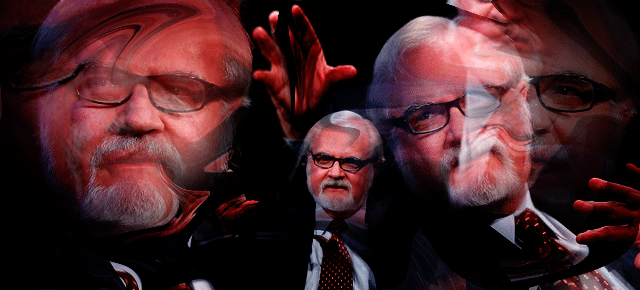Oxford, del 20 al 22 de julio de 2015. El octavo congreso ‘Film-Philosophy’ está dedicado al análisis de la forma y el estilo fílmicos. Esta edición promueve, por tanto, la discusión sobre los criterios aplicados en la evaluación de un estilo, un filme, una secuencia o un momento singular. Fecha límite de envío de comunicaciones: 30 de enero de 2015.
Film-Philosophy Conference 2015: The Evaluation of Form
University of Oxford
July 20, 2015 – July 22, 2015
The eighth Film-Philosophy Conference 2015 welcomes papers discussing the evaluation of film form and/or style. The conference will encourage the discussion of criteria and reasons for valuing aspects of form and the moment-by-moment processes of evaluation as they relate to the form and style of a whole film, a sequence from a film, or even an individual moment.
Why do we value some instances of film form as, for example, beautiful, insightful, eloquent, complex, economical, stirring, subtle, or profound, and how do we support these claims? How do we draw philosophical significance from close readings of film form, and how far should matters of value be part of philosophical accounts? What are the different ways that content can be effectively expressed in or through form? How might various conceptualisations of spectator response – cognitive, imaginative, intellectual, emotive, or sensorial – differ in their evaluations of form? How does an individual style distinguish itself within a prevailing style or a tradition? In what ways is the medium important in assessing form and style; and why does some material work well in certain media and not in others? How should the shift from analogue to digital technologies change our evaluations? How do we find ourselves evaluating physical and material aspects – shape, colour, design – in terms of less tangible modes of address like tone, atmosphere or mood? How do our judgements, say, for example, our moral judgements, about the way people present themselves compare and contrast to our judgements about how films present themselves? In our formal academic analyses of films, and specifically in our film-philosophical analyses, how should we acknowledge factors such as pleasure and taste that are a significant part of the production and reception of films? How far is our perception intrinsically, or unavoidably, evaluative?
Major Keynote: Professor Noël Carroll
Deadline for submissions: 30 January 2015
Decisions will be announced on 2 March 2015
We welcome papers that:
- illuminate the issues by using the work of philosophers and philosophical theories
- illuminate the issues by analysing specific films or sections from films
- scrutinise evaluations of form and style as they exist in the critical literature on film
- attend to related audio-visual forms (e.g., television, digital media, art installations)
- are by scholars working in philosophy and film studies, or both; and especially scholars who are working within the Philosophy of Art and Analytic Aesthetics who may not have previously attended or presented at a Film-Philosophy conference
We are especially interested in papers that discuss evaluation in relation to:
- Form and Content; style and meaning
- Formal expression of politics, ethics, and morality
- Style: individual (e.g., a directorial style, a performer’s style), period styles, generic styles, national styles; stylistic conventions; personal expression
- Individual elements of form and style (e.g., camera movement, composition, performance, colour, sound, storytelling)
- Medium, ontology, materiality
- Form and representation, and representational qualities (e.g., true to life, distorted, realistic)
- Affectivity, sensual immediacy, texture and affective qualities (e.g., powerful, boring, amusing, stirring)
- Cognitive, imaginative, emotive reactions to form and style
- Tone, mood and atmosphere
- Pleasure, taste, and appreciation
- Skill, technique and craft
- Design, structure, parts and wholes (for example, coherence, complexity, unity, completeness, balance)
- Form and Function
- Value qualities (for example, beauty, sublimity, ugly)
- Histories of film form and style, and historically related evaluative properties/responses (e.g., original, bold, conservative, derivative)
- Criticism, histories of criticism, and critical movements (e.g. photogénie, mise-en-scène)
- Philosophers and philosophical writing on form
- Film-Philosophy methodology
While we encourage papers that speak to the conference theme, we also welcome papers on other topics relevant to film-philosophy.
Conference Information
- » Call for Papers (November 15, 2014 – January 30, 2015)
- » Timeline











1 comment
2015, año de congresos - SEyTA says:
Dic 28, 2014
[…] Film-Philosophy Conference 2015 […]